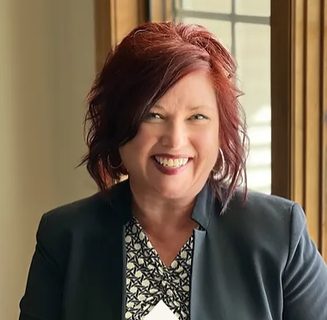The Madison area has all the pieces to become a world-class high-tech entrepreneurial city, a panel of experts said Tuesday at a Wisconsin Innovation Network luncheon. What’s missing, however, is a site where they can all come together, they said.
That would be rectified in large part if a proposal called “StartingBlock Madison” comes to fruition next year, said George Austin, the capital city’s former planning and development department director who is managing the East Washington Avenue effort.
“The idea is to bring together in a single location the critical components that local entrepreneurs need,” explained Austin, who said the project is modeled after similar startup hubs in other cities, including Chicago’s 1871. “This is what Madison needs to become a Top 10 startup metro, by bringing its existing components together … in a planned collision of people.”
Read this story at WisBusiness.com here.
Austin said Madison – more than any other place in the state – has a young and rapidly growing creative tech workforce that he called one of the region’s greatest assets. From 2000 to 2010, he noted, the number of people in the 20- to 30-year-old cohort grew by 10,000. At the same time, the rest of the state had an out-migration of 55,000 in the same age group.
“With this additional piece of economic infrastructure, we are poised to retain Wisconsin’s talented young adults,” he said. “The impact of StartingBlock to the city, region and state would be more startups, more successful companies, better products and a stronger community. It could be the difference between being a leader versus a follower in the 21st century.”
Austin, now a consultant, led the efforts to build Madison’s Monona Terrace Convention Center, the Overture Center and the public/private Institutes for Discovery on the UW-Madison campus. He said StartingBlock would be a complex where entrepreneurs, investors, advisors and community members could share innovative ideas and create next-generation businesses. It would be built in the East Capitol Corridor in the 800 block of East Washington Avenue and cover 50,000 square feet.
He said three of the hub’s tenants would include gener8tor, which helps promising startups launch; Sector67, a community technology workspace; and Capital Entrepreneurs, an organization for startups. He lauded Madison Gas & Electric for funding the planning of StartingBlock, and the city of Madison and American Family Insurance Co. for backing the project financially. But he said another $1.5 million needs to be raised in the next six months to get StartingBlock off the ground and operating.
Gary Wolter, MG&E’s CEO and a panelist, said his company is backing the project as a way to keep young entrepreneurs in Madison instead of losing them to cities like Chicago, Minneapolis, Boston or San Francisco.
Troy Vosseller, co-founder of gener8tor, agreed that Madison has struggled to keep bright graduates in the area. But he said hubs like the proposed StartingBlock would help retain them because it would be a spot where people could find support for their ideas, get financing and turn them into ideas.
Anne Smith, co-founder and co-director of the Law & Entrepreneurship Clinic at the UW Law School, said the hub could be a home for people who have day jobs, but need space to pursue their passions of starting companies. It would also house nascent companies, mentors and be a place where entrepreneurs could meet with venture capitalists, she said.
“With a place like this, they could follow their real dream and not be working for someone else,” she said.
And as much as she would like to see nascent companies grow at StartingBlock, she said it would not be a place for larger firms.
“If they get too big,” she quipped, “they’ll have to go.”




